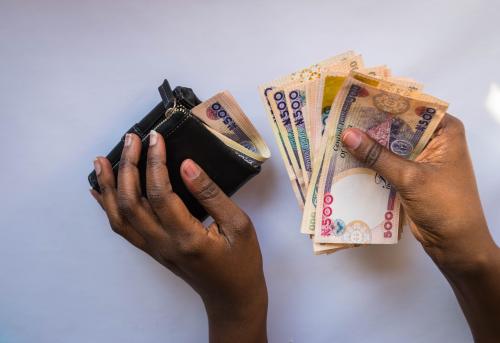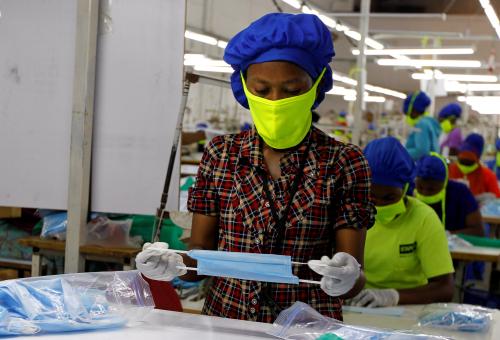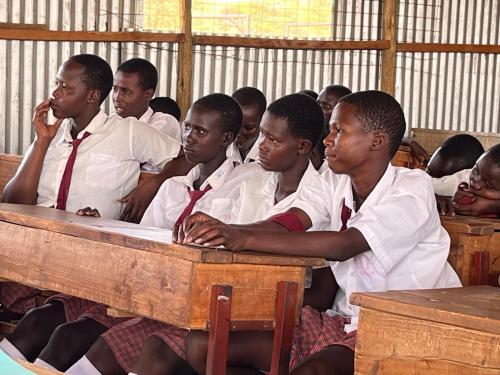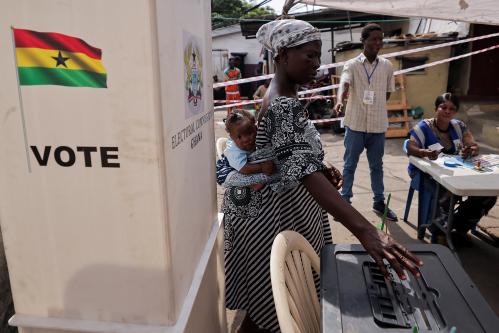This blog was updated on October 19, 2020.
Upcoming Guinean election
On Sunday, Guinea will vote on whether to elect 82-year old President Alpha Condé to a third term, one of 10 presidential elections due to be held in Africa over the next five months. Condé, the country’s first democratically elected president, will face leading opponent Cellou Dalein Diallo in a race that has already sparked violence and many worry will incite more after the election. In March, violence broke out amid a controversial constitutional referendum which resulted in 32 people killed, more than 90 injured, and widespread destruction of property in multiple cities. The referendum, which also banned female genital mutilation and underage and forced marriage, reset Condé’s term limit and extended the presidential term from five years to six.
Guinea is part of a growing list of countries whose heads of state have amended or replaced their constitutions in order to stay in power. For instance, Uganda’s 76-year old president Yoweri Museveni, previously too old to be eligible for reelection, changed the constitution to gain eligibility to run in the country’s presidential election in February 2021. Moreover, earlier this year, Côte d’Ivoire’s Constitutional Council approved President Alassane Ouattara’s controversial bid to run for a third term in the country’s upcoming October 31 election after his handpicked successor, Prime Minister Amadou Gon Coulibaly, died in July.
Extension of the Debt Service Suspension Initiative
On Wednesday, the G-20 announced that it will extend its debt service suspension initiative (DSSI) by an additional six months to June 2021. DSSI, whose first moratorium was announced in April, suspends debt repayments (including interest) on bilateral debt for 73 low-income countries plus Angola. The deferral of payments, which does not reduce the amount owed by participating countries, is expected to free up billions of dollars to finance pandemic-related social spending that otherwise would have been spent on servicing debt. G-20 representatives also said that finance ministers and central bank governors have agreed on a common framework for debt reduction, though the details of this maneuver have not been agreed upon and would occur on a case-by-case basis next year. That said, however, critics of the initiative claim that it does not go far enough to obviate defaults and point to the fact that eligible countries have only suspended a combined $5 billion of debt, only half of what was expected, as an indication that the initiative does not offer favorable enough conditions.
Zambia, one country that has benefited from DSSI and that is dangerously close to becoming the first country to default on its loans during the pandemic, announced this week that it will resist paying arrears (i.e., money past due) as a condition of receiving debt relief from Chinese investors. Zambia’s struggles with non-bilateral creditors reveal the limitations of the DSSI, namely, that it applies only to government-to-government debt. Approximately one-third of Zambia’s debt is held by Chinese creditors, not all of whom are governmental. Indeed, a share of this debt has been issued by the China Development Bank, whose status as an official lender—and subsequent obligation to participate in DSSI—has been a subject of dispute.
Protests in Nigeria and Namibia
Nigerian President Muhammadu Buhari announced this week that he would disband the Special Anti-Robbery Squad (SARS), a unit of the Nigerian federal police, following mass protests sparked by a video of SARS officers allegedly killing a man. SARS has also been accused of extrajudicial killings, extortion, and torture, especially of young people. The government plans for SARS to be replaced by a new unit, the Special Weapons and Tactics team. Protests have continued despite Buhari’s agreement to disband the unit, as many protestors argue the changes are not enough to reform the police and that past promises to reform the police have not been kept. In response to the continued protests, Nigeria’s army warned “all subversive elements and troublemakers” that it is ready to support the civil authority, and promised to “maintain law and order.”
Protests have also rocked Namibia over the last two weeks, after news confirming the death of a young woman, Shannon Wasserfall, who had gone missing in April sparked widespread outrage over gender-based violence. Gender-based violence is a persistent problem in Namibia; police are reported to receive at least 200 cases of domestic violence per month, and more than 1,600 cases of rape were reported from the beginning of 2019 through June 2020. On October 10, the third day of protests, police responded to protestors in capital city Windhoek with teargas, rubber bullets, and batons, and arrested dozens of protestors, sparking further anger. In response to the protests, the Namibian government has proposed a four-year National Action Plan on Gender-Based Violence in Namibia, which would provide support for survivors of violence, update outdated laws related to gender-based violence, and address issues of inconsistent implementation and enforcement.
The Brookings Institution is committed to quality, independence, and impact.
We are supported by a diverse array of funders. In line with our values and policies, each Brookings publication represents the sole views of its author(s).







Commentary
Africa in the news: Upcoming election in Guinea, debt suspension extension, and protests in Nigeria and Namibia
October 17, 2020